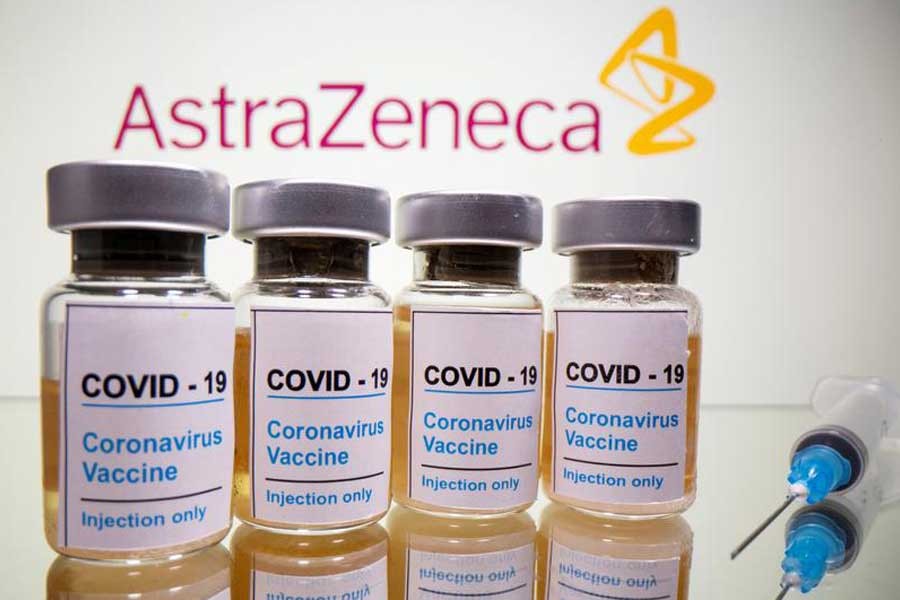Bangladeshi experts see no adverse side effect of AstraZeneca vaccine

Published :
Updated :

Bangladesh is purchasing 30 million doses of Oxford University-AstraZeneca vaccine from Serum Institute of India, the largest vaccine manufacturer of the world, to tackle the coronavirus outbreak.
But questions over the side effects of the jab are bugging people as all the vaccines have some side effects.
Citing data from the clinical trials in India, health experts have found no reason to panic or feel uneasy about the side effects of the vaccine, which was 70.42 per cent effective in the trials, reports bdnews24.com.
They have said that the data indicate there is no adverse side effect of the vaccine.
Dr Be-Nazir Ahmed, a former director at the Directorate General of Health Services, thinks there would have been strong evidence to back the claim that the vaccine is safe for Bangladeshis had the trials also been held here.
But Bangladesh’s weather, culture and ethnicity are much similar to those of India, where trials of the vaccine have shown promising results. This is good news for Bangladesh, believes Be-Nazir, an advisor to the World Health Organization.
“The vaccine is sufficiently effective and safe. So, it can be said that it will be effective in Bangladesh. Some people may have side effects, but there shouldn’t be a great deal of discomfort,” he said.
Sayedur Rahman Khasru, chairman of pharmacology department at Bangabandhu Sheikh Mujib Medical University, believes the advantages in getting a vaccine amid a pandemic outweigh the risks of side effects.
“The side effects of the vaccine are at an acceptable level. That's why it is being approved for emergency use worldwide,” he said.
He also thinks the authorities should take precautionary measures to manage the side effects of the vaccine. “It's still possible as we have 15 to 20 more days before the vaccines arrive,” he said.
Mushtuq Husain, a member of the committee on COVID-19 vaccine distribution and preparations, said they are also watching the inoculation drives in other countries to learn more about the side effects of COVISHIELD.
“Our doctors have the ability to tackle the possible common side effects of the vaccine,” he said.
Meerjady Sabrina Flora, an additional director general of health, said in a recent press conference that the DGHS has all the information about the side effects of the vaccine.
A committee will monitor the people who are getting the shots, she said. There will be mobile teams and medicines to tackle any situation, she added.
Md Shamsul Haque, a line director at the DGHS, said they will closely watch the vaccination drive in India.
“It will help us take decisions. India’s vaccination campaign will be like a trial for us,” he said.
Out of total 30 million doses, five million doses of the vaccine are expected to arrive in Bangladesh each month. If everything goes according to the plan, the vaccination will begin in early February.
India is set to begin the immunisation drive, largest in the world, on Saturday. Besides India and Bangladesh, the UK, Argentina, Nepal and many other countries have approved emergency use of the vaccine.
In a fact-sheet on the vaccine, dubbed and manufactured in India as 'Covishield’, Serum has outlined the risks and side effects of the vaccine along with other factors.
The very common side effects of the vaccine, which may affect more than 1 in 10 people, are tenderness, pain, warmth, redness, itching, swelling or bruising where the injection is given, generally feeling unwell, feeling tired (fatigue), chills or feeling feverish, headache, feeling sick (nausea) and joint pain or muscle ache.
Common side effects, which may affect up to 1 in 10 people, are a lump at the injection site, fever, being sick (vomiting), flu-like symptoms such as high temperature, sore throat, runny nose, cough and chills.
Uncommon side effects, which may affect up to 1 in 100 people, include feeling dizzy, reduced appetite, abdominal pain, enlarged lymph nodes, excessive sweating and itchy skin or rash.
Those who had a severe allergic reaction after a previous dose of this vaccine or had a severe allergic reaction to any ingredient of this vaccine should not get it.
People should also inform the healthcare providers about all of their medical conditions before getting the shot.


 For all latest news, follow The Financial Express Google News channel.
For all latest news, follow The Financial Express Google News channel.